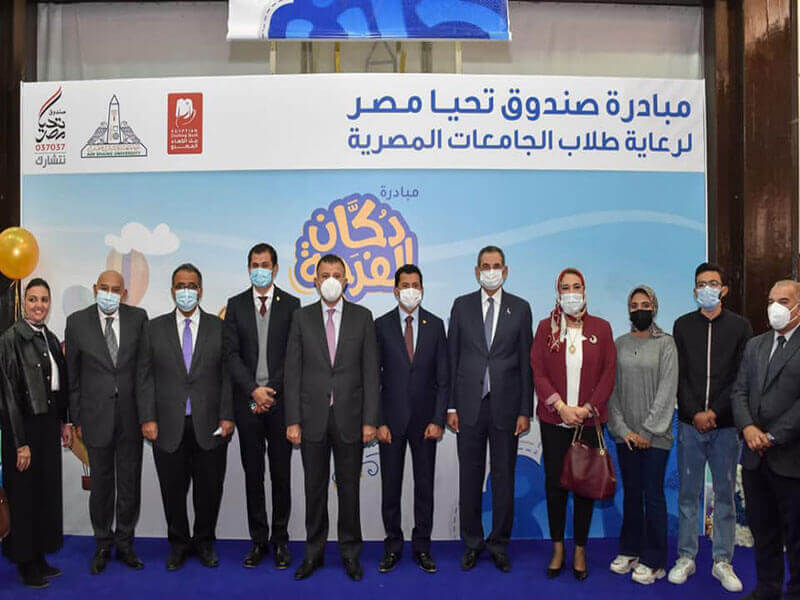Ain Shams University receives Tahya Misr Fund initiative, Dokan Al Farha, to support 5,000 students
Dr. Ashraf Sobhi, Minister of Youth and Sports, and Major General Mohamed Amin Nasr, Advisor to the President of the Republic and Treasurer of Tahya Misr, Prof. Dr. Mahmoud El-Metini, President of Ain Shams University, Prof. Dr. Abdel Fattah Saoud, Vice President for Education and Student Affairs, and Mr. Tamer Abdel-Fattah, Executive Director of Tahya Misr Fund, opened Dokan Al-Farha exhibition in the student city of Ain Shams University, as part of the implementation of the third phase of the initiative in Egyptian universities, in the presence of Prof. Dr. Hisham Tamraz, Vice President for Community Service and Environmental Development, and a group of deans and vice deans of university faculties, Mr. Muhammad Al-Khatib, Assistant Secretary for Education and Student Affairs, Mr. Muhammad Al-Sharkawi, Director General of the General Administration of Youth Welfare, and Mr. Ibrahim Saeed, Acting Director General of University Cities.
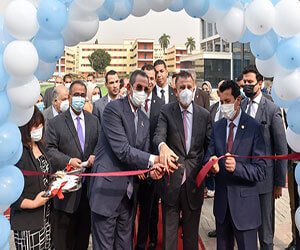 |
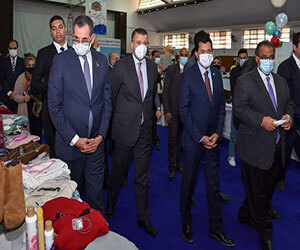 |
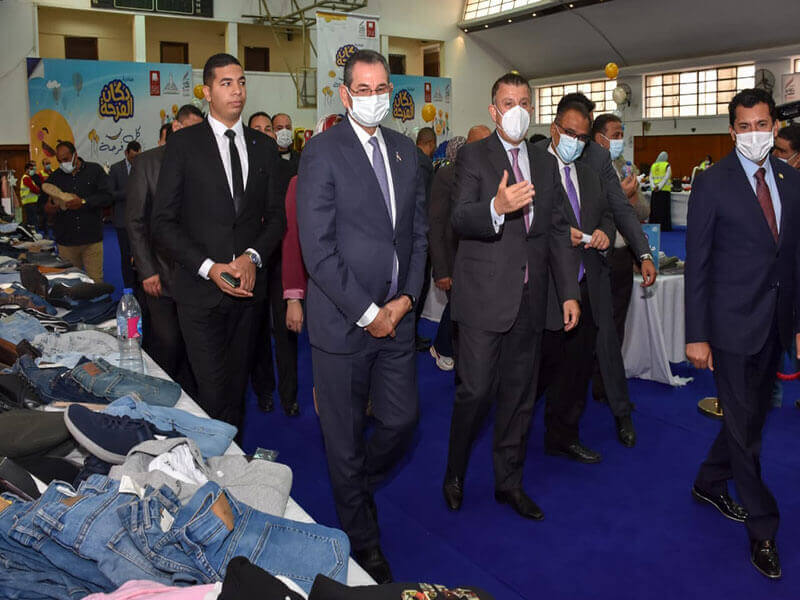 |
||
The initiative aims to distribute one million pieces of clothing to the beneficiaries in universities, orphanages and homeless children's institutions.
The exhibition at Ain Shams University includes 15,000 pieces of clothing, shoes and accessories, which were provided to about 5,000 deserving students.
The exhibition is organized within the framework of the precautionary measures imposed by the state to confront the Corona virus, where students are allowed to visit the exhibition and choose 3 pieces for each student completely freely without crowding.
The exhibition continues to receive students for four days, and is organized in cooperation with the Egyptian Clothing Bank and a number of Egyptian companies specialized in the manufacture and import of clothing.
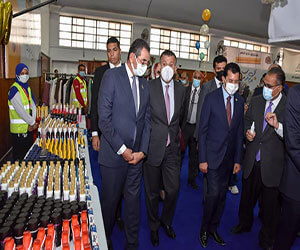 |
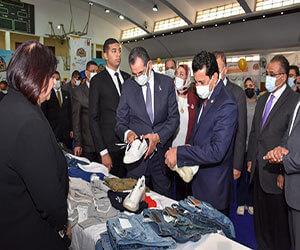 |
||
It is noteworthy that Dokan Al-Farha initiative was launched in April 2019 with the aim of implementing social protection activities and programs for the most vulnerable families in all villages and hamlets.
The initiative organizes exhibitions to provide new clothes within government universities and orphanages. About 700,000 pieces of clothing have been distributed to nearly 300,000 beneficiaries, during the first and second phases of the initiative, as well as a number of bicycles for children and personal hygiene tools.
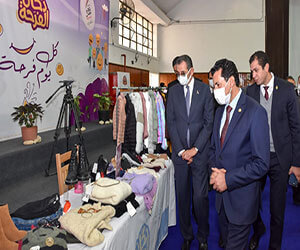 |
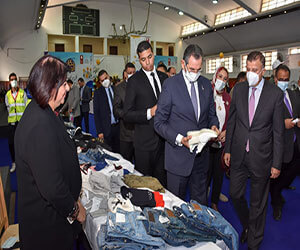 |
||
.svg)

